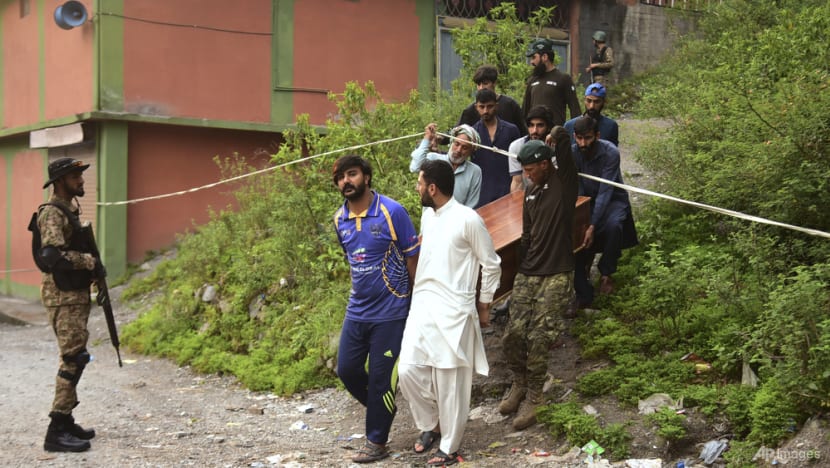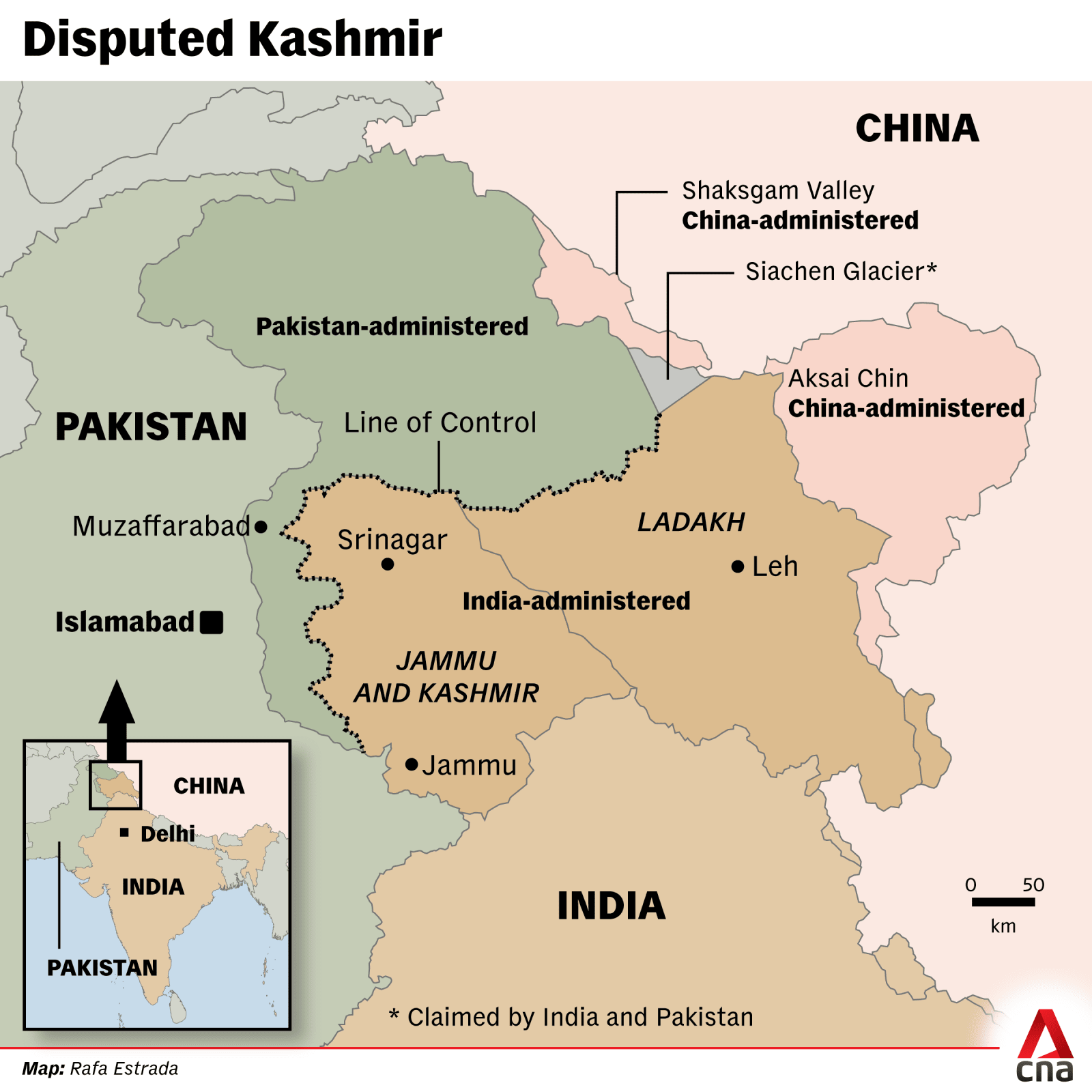Snap Insight: India and Pakistan are on the brink, but war is not inevitable
Despite their long history of conflict, both India and Pakistan are wary of being pulled into full-scale hostilities and off-ramps are still available, says NUS Institute of South Asian Studies’ Iqbal Singh Sevea.

A soldier stands guard as volunteers carry a body after recovering it from a mosque damaged by a suspected Indian missile attack near Muzaffarabad, the capital of Pakistan controlled Kashmir, May 7, 2025. (AP Photo/MD Mughal)

This audio is generated by an AI tool.
SINGAPORE: In the early hours of Wednesday (May 7), India carried out missile strikes on nine sites in Pakistan and Pakistani-administered Kashmir in response to a terror attack on Apr 22 in which 26 tourists were assassinated in the Indian hill station of Pahalgam in Kashmir.
Pakistan has promised a robust response to this “act of war”, putting the two nuclear powers on the brink of war. Heavy cross-border firing has already broken out and civilian deaths have been reported on both sides but not confirmed.
New Delhi has asserted that the strikes are part of an anti-terror operation and stressed that it did not target military and civilian installations. India has long accused Pakistan of training and supporting Kashmiri militants fighting for the secession.
Although miscalculations and tit-for-tat responses could escalate tensions between the two neighbours with a long history of violent conflict, both are wary of being pulled into full-scale hostilities.

INDIA’S LONGER-TERM STRATEGY
This is clear from India's language in its official statements on the strikes. It described them as “focused, measured and non-escalatory” actions solely targeting “terrorist infrastructure” linked to the militant organisations, Lashkar-e-Taiba and Jaish-e-Mohammed.
Instead of pursuing a large-scale military entanglement, India has adopted a multi-pronged and longer-term strategy through which it aims to exert pressure on Pakistan.
The suspension of the Indus Water Treaty and the weaponisation of water is one such signal. India has suspended the 1960 treaty, which governs how the waters of rivers that run through India and Pakistan are shared.
It is important to note that India does not have the required dam infrastructure to shut off the flow of water to Pakistan immediately, but it has announced that it will develop storage and distribution infrastructure to do so.
PAKISTAN MUST FIND ITS CALIBRATED RESPONSE
There is no question that Pakistan will respond to India’s strikes with some form of military action. It will, however, need to calibrate this in a manner that does not escalate tensions beyond a point.
Such rhetoric and action should, however, be seen as attempts to raise the ante to a point that other countries pressure India to taper its response and re-evaluate its position on the sharing of river waters.
It is also worth noting that tensions with India and the strikes have led to a burgeoning of support for the military across Pakistan. The military, which plays a major role in the politics of the country, had been confronted by mass protests and opposition over the past few years for meddling in the political process.
The current crisis has abated these protests. Thus, while the military will need to display its ability to respond to attacks, it will be conscious of not jeopardising its newfound support by escalating military tensions beyond a point that the public can bear.
ESCALATION IS NOT THE ONLY OUTCOME
Despite current tensions, there are off-ramps for India and Pakistan to de-escalate.
India can claim that its current strikes have shown its determination to fight terrorism. Pakistan could retaliate by air strikes of its own on non-military targets in India and launch large-scale action against militants in the restive province of Balochistan, which it accuses India of supporting.
But one important variable that currently remains unclear is the number and nature of casualties sustained by the Indian strikes and cross-border firing. This will determine the domestic demands for action and whether India and Pakistan can pacify them.
Iqbal Singh Sevea is Associate Professor and Director of the Institute of South Asian Studies, National University of Singapore.
















